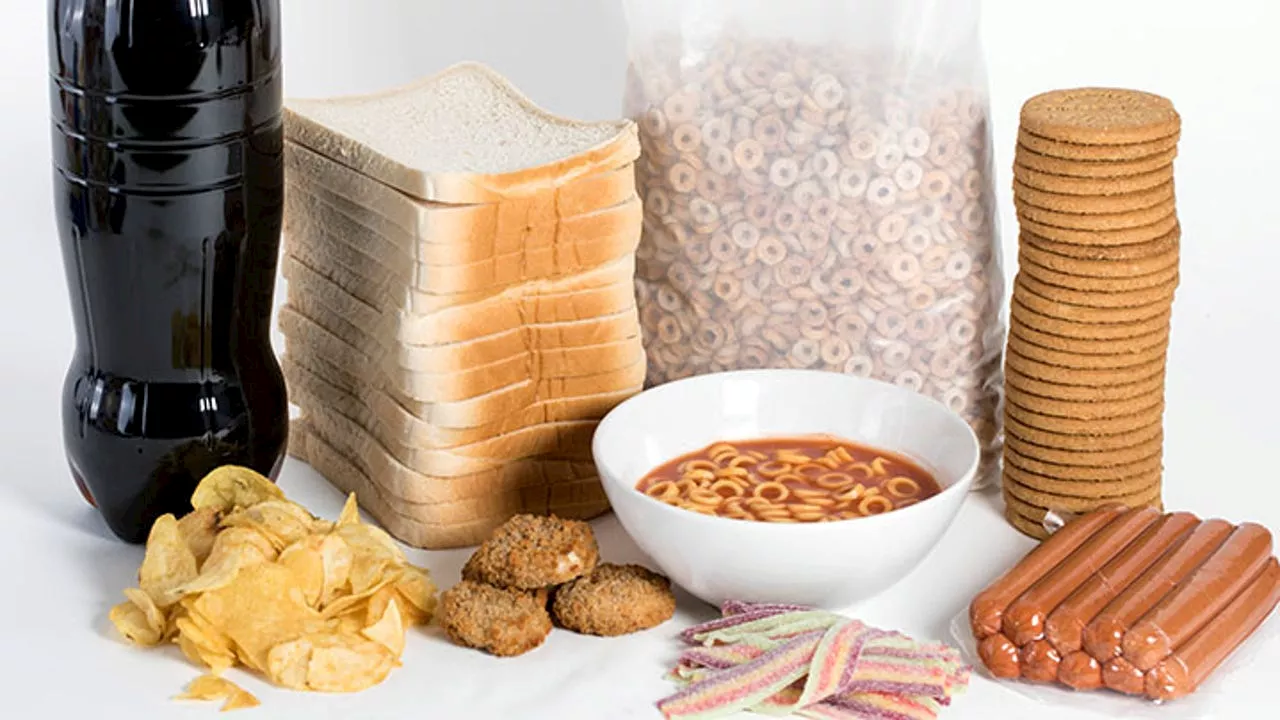Health
Study Links Ultra-Processed Foods to Rising Colon Cancer Risk

A recent study has established a concerning connection between ultra-processed foods and an increased risk of early signs of colon cancer in young adults. The research, conducted by the Mass General Brigham Cancer Institute, analyzed data from nearly 30,000 young and healthy women, revealing that higher consumption of these foods correlates with a greater likelihood of developing precancerous lesions known as colon adenomas.
Ultra-processed foods encompass products like boxed soups, frozen meals, and items with extended shelf lives. These foods, prevalent in American diets since the 1970s, 1980s, and 1990s, often contain industrial ingredients not typically found in home kitchens. According to public health estimates, they account for around 70% of the average American diet, raising alarm among health experts.
Dr. Katherine Van Loon, a professor at UCSF and director of the UCS Global Cancer Program, emphasized the significance of these findings in understanding the rise of colorectal cancer in younger populations. “Every patient in my clinic is very, very young,” Dr. Van Loon explained. “We’re seeing decreasing rates in people over 45, but rising rates in younger people. This is resulting in a rising mortality rate from an otherwise preventable disease.”
Previous studies have linked early-onset colorectal cancer to factors like obesity, Type 2 diabetes, sedentary lifestyles, and diets high in red and processed meats. However, Dr. Van Loon noted that many young patients she encounters do not fit these patterns, highlighting the need for further investigation into dietary influences. “That’s why this study is so important,” she stated. “It adds another layer to what may be driving this epidemic.”
While the research did not specify which ultra-processed foods were most concerning, Dr. Van Loon mentioned that these often include convenience products familiar to many Americans. She remains optimistic about the possibility of reversing unhealthy dietary trends. “We know from tobacco research that when someone stops smoking, their cancer risk decreases,” she remarked, suggesting that similar interventions could mitigate the effects of long-term ultra-processed food consumption.
To promote healthier habits, Dr. Van Loon advocates for prioritizing fresh foods, such as vegetables and unprocessed meats. She also underscores the importance of regular screening for colorectal cancer, particularly for individuals aged 45 and older. “If someone is experiencing bowel changes, blood in their stool, abdominal pain, cramping, or unexplained weight loss, they should see a doctor,” she advised. “Just because you’re not yet 45 doesn’t mean those symptoms don’t need medical attention.”
Dr. Van Loon believes that increasing awareness and encouraging earlier medical action could help counteract the troubling trend of rising colorectal cancer diagnoses among younger adults. By fostering healthier eating habits and taking symptoms seriously, there is hope for reversing the impacts of a diet heavily reliant on ultra-processed foods.
-

 Science1 month ago
Science1 month agoIROS 2025 to Showcase Cutting-Edge Robotics Innovations in China
-

 Science2 weeks ago
Science2 weeks agoUniversity of Hawaiʻi at Mānoa Joins $25.6M AI Initiative for Disaster Monitoring
-

 Lifestyle1 month ago
Lifestyle1 month agoStone Island’s Logo Worn by Extremists Sparks Brand Dilemma
-

 Health1 month ago
Health1 month agoStartup Liberate Bio Secures $31 Million for Next-Gen Therapies
-

 Lifestyle1 month ago
Lifestyle1 month agoMary Morgan Jackson Crowned Little Miss National Peanut Festival 2025
-

 World1 month ago
World1 month agoBravo Company Veterans Honored with Bronze Medals After 56 Years
-

 Health1 month ago
Health1 month agoTop Hyaluronic Acid Serums for Radiant Skin in 2025
-

 Politics1 month ago
Politics1 month agoJudge Considers Dismissal of Chelsea Housing Case Citing AI Flaws
-

 Science1 month ago
Science1 month agoArizona State University Transforms Programming Education Approach
-

 Business1 month ago
Business1 month agoTruist Financial Increases Stake in Global X Variable Rate ETF
-

 Sports1 month ago
Sports1 month agoYamamoto’s Mastery Leads Dodgers to 5-1 Victory in NLCS Game 2
-

 Top Stories1 month ago
Top Stories1 month agoIndonesia Suspends 27,000 Bank Accounts in Online Gambling Crackdown








